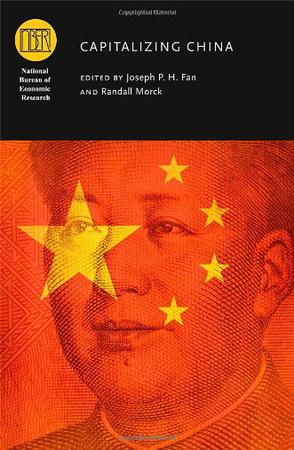-

Party, State and Local Elites in Republican China
-

Strong Society, Smart State
The rise and influence of public opinion on Chinese foreign policy reveals a remarkable evolution in authoritarian responses to social turmoil. James Reilly shows how Chinese leaders have responded to popular demands for political participation with a sophisticated strategy of tolerance, responsiveness, persuasion, and repression -- a successful approach that helps explain how and why the Communist Party continues to rule China. Through a detailed examination of China's relations with Japan from 1980 to 2010, Reilly reveals the populist origins of a wave of anti-Japanese public mobilization that swept across China in the early 2000s. Popular protests, sensationalist media content, and emotional public opinion combined to impede diplomatic negotiations, interrupt economic cooperation, spur belligerent rhetoric, and reshape public debates. Facing a mounting domestic and diplomatic crisis, Chinese leaders responded with a remarkable reversal, curtailing protests and cooling public anger toward Japan. -

The Dynamics of Chinese Politics
-

性别、政治与民主
第一部探讨近代中国妇女获得平等权利参政运动的研究著作。 内容简介 本书按年代顺序探讨了1900年至1948年中国妇女争取选举权的运动,第一次全面研究了中国妇女争取选举权斗争运动及其与早期妇女运动之间的联系。中国妇女运动活动家们在20世纪上半叶为获得选举权所发起的持续地、成功地斗争挑战了长达数个世纪以来的根本性的政治权利原则。通过要求为女性获得公共的政治声音,这些积极分子推动了一个不仅仅是为了妇女自身的,而是整体政治结构的民主代表新概念。她们的运动创造了一个新的空间,使得男性和女性道德的性别规范在这一空间急剧地转型。 作者简介 李木兰(Louise Edwards),香港大学中国史教授、澳大利亚人文学院院士、澳大利亚社会科学院院士、香港人文学院院士 -

中共政治改革的邏輯
本書所關注的問題非常簡單:為什麼在中共中央有一套既定的法規與政策下,中國大陸的省份,其政治改革的模式與幅度不盡相同?整體而言,本書是在回答兩個問題。第一,為何省級的政改模式不同?第二,為何省級的政改力度不同?對於第一個問題,筆者提出「政績」的解釋。各地經濟發展狀況的不同,使得省委書記相繼追求「和諧社會」(社會維穩)或「小康社會」(經濟發展)的政績。人事制度改革有助於前者的完成,行政體制改革和後者有關。本書分別以「基層首長選制」與「行政三分制」,做為兩種改革的探討指標。第二個問題,筆者以「派系」來解釋。若最高領導人和省委書記之間,存在著派系關係,則由於省委書記發動改革的政治風險較低,因此該省才可能出現大規模的政治改革。 -

Capitalizing China
China's economic boom over the last two decades has taken many analysts by surprise, given the ongoing role of central government planning. Its current growth trajectory suggests that the size of its economy could soon surpass that of the United States and some argue that continued growth and the expanding middle class will ultimately exert pressure on the government to bring about greater openness of the financial market. To better understand China's recent economic performance, this volume examines the distinctive system it has developed: "market socialism with Chinese characteristics". While its formal institutional makeup resembles that of a free-market economy, many of its practices remain socialist, including strategically placed state-owned enterprises that wield influence both directly and through controlled business groups, and Communist Party cells whose purpose is to maintain control of many segments of the economy. China's economic system, the contributors find, also retains many historical characteristics that play a central role in managing the economy. These and other issues are examined in chapters on China's financial regulations, corporate governance codes, bankruptcy laws, taxation, and disclosure rules.